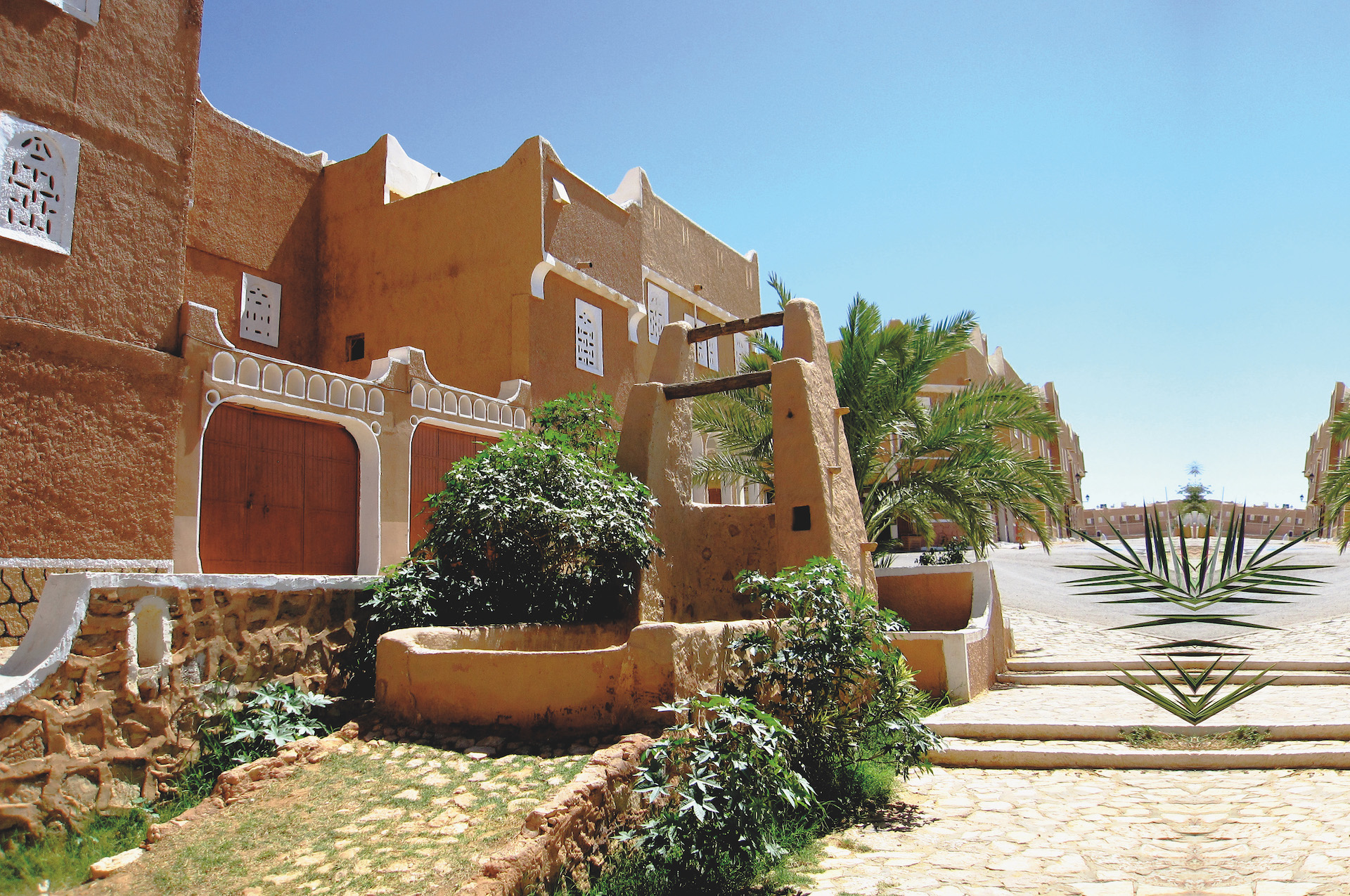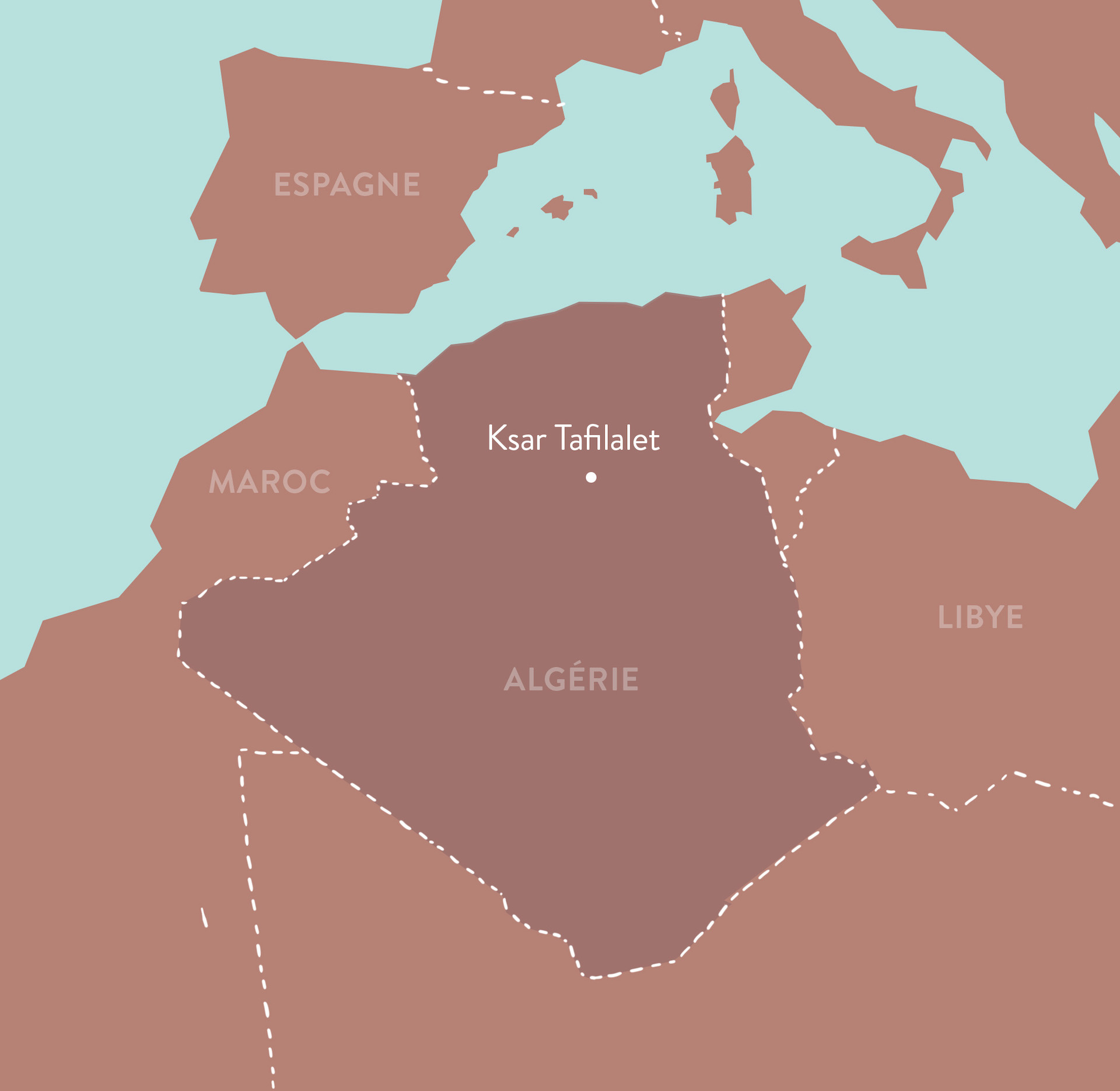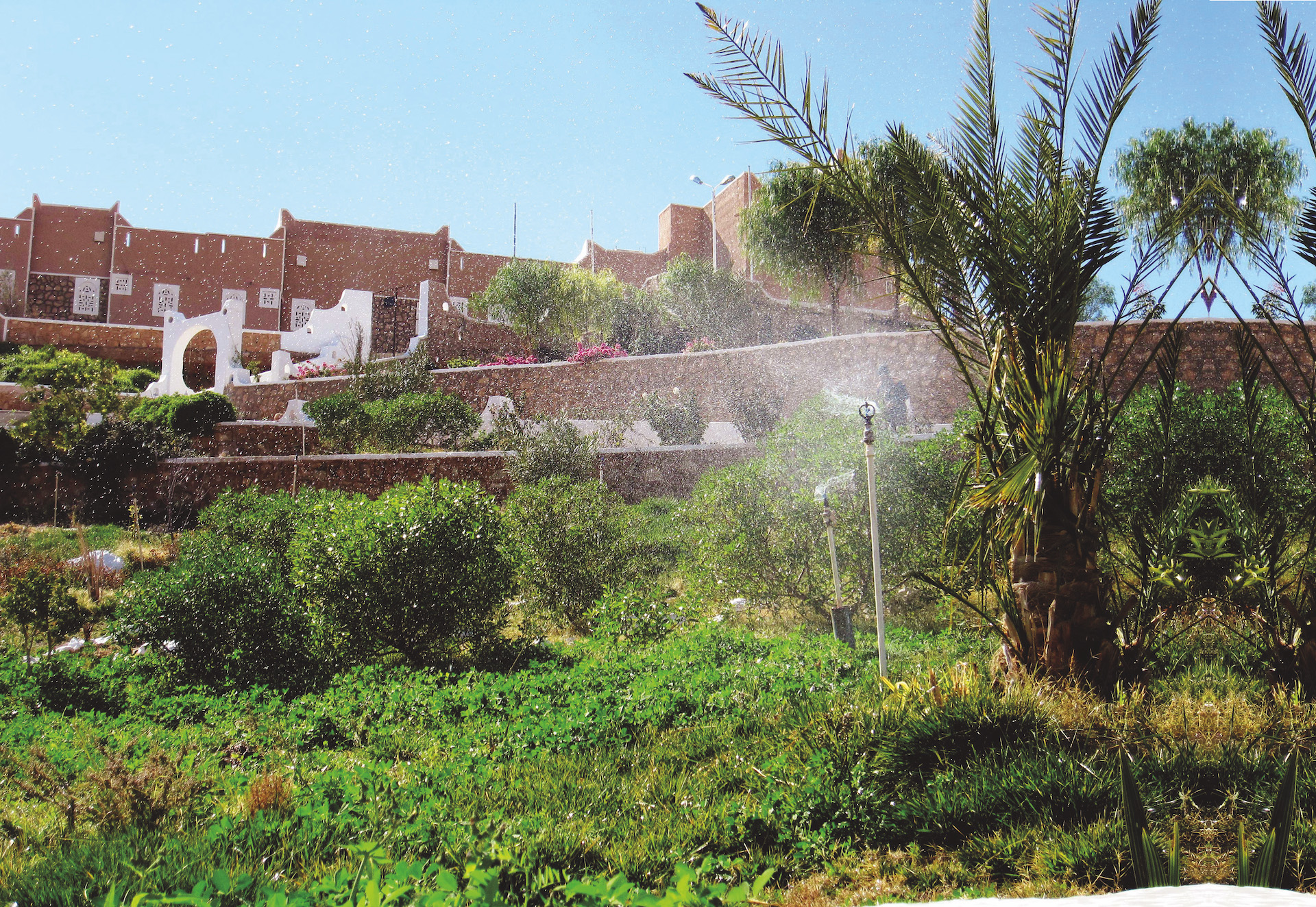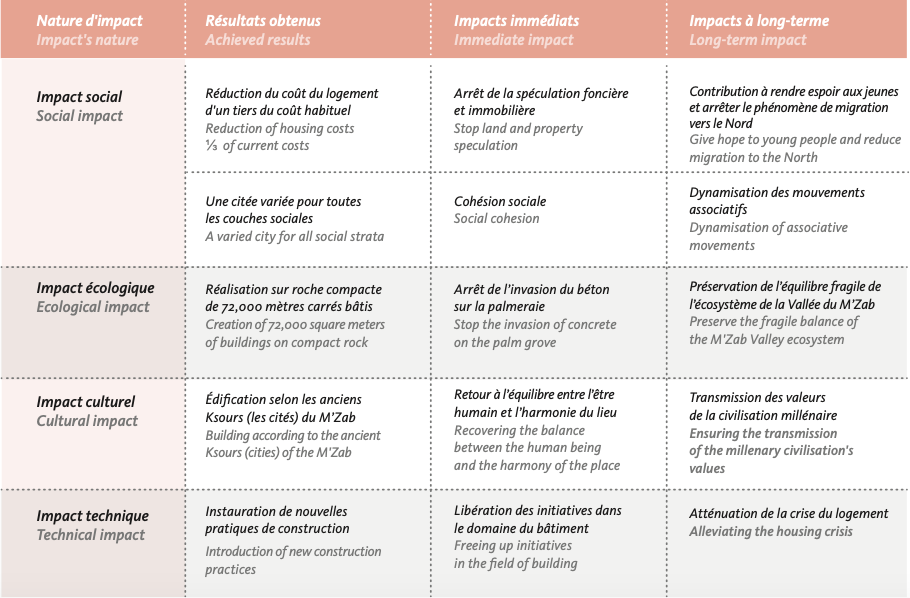Ksar Tafilelt, A Sustainable Oasis

Let us lead you to the desert to talk about oasis...
Perched atop a plateau overlooking the M'zab valley, at the gateway to the Algerian Sahara, Ksar Tafilelt has, for nearly 20 years, combined tradition and sustainable development to build a resilient city and offer a new model for community life. There, between the ochre and white walls of an eco-designed living space, the inhabitants are busy preserving their common property. This approach was rewarded with the first prize for sustainable cities at COP 22 in 2016, and recently with the Energy Globe National Award. It shows us that even in the middle of the desert, living in harmony with nature is possible!

A dream come true
Beni-isguen, 1997. The Amidoul Foundation is created by Ahmed Nouh, a retired pharmacy doctor. It acquired a 22 hectare plot of virgin land very early on, and then began promoting its programme the same year. The objective: to offer the populations which are most affected by the housing crisis (people living below the poverty line, young people, women with children or dependent parents) zero-interest loans for the purchase of land and a house. It quickly became a success. After the first housing allocations in 2000, Ksar Tafilelt now counts more than 6,000 inhabitants. There are a thousand houses divided into blocks of 28 to 30 buildings. But the story does not end there, with this city offering an environmental model and responsible community living.

An eco-designed city
The city is also inspired by the principles of Ksourian architecture. Adapted to the desert climate, it stands out thanks to very distinct architectural processes: narrow, winding streets to protect from the sun and break the Saharan sand winds, buildings made of stone, plaster and lime, which are much better thermal and sound insulators than concrete, as well as being more sustainable and less expensive! Everywhere, the houses are no more than one storey high, or 7.6 metres, in order not to block the sunlight from their neighbours, and are naturally ochre or white in colour. The houses are also adorned with windows barred by moucharabiehs, small openwork partitions that allow for forced natural ventilation and thus ensure coolness inside the buildings. Add to this the fact that in Ksar Tafilelt, 50 % of the waste water is reused, thanks in particular to the town's water treatment system. Reflections are currently underway on the construction of waste water treatment plants and solar energy in order to optimise the city's development and innovate in terms of sustainable development.
Shared responsibilities
Beyond a social response to the housing crisis that has been affecting the country for almost 10 years, the resurrection of the ancestral values of mutual aid and solidarity advocated by the Ibadite rite is also at the heart of this project. This minority current of Islam, especially present in Oman and certain North African cities is the one the inhabitants of the M'zab valley, the Mozabites, mostly adhere to.
Work, or touiza, which includes collaborative work such as the construction of common buildings or the cleaning of the city, is perceived, along with mutual aid and solidarity, as duties.
Managing such a city requires the establishment of rules and codes of conduct. Each person who chooses to live in Ksar Tafilelt signs a charter when arriving in the town. This charter states the rules of good conduct, living together, cleanliness, mutual aid and much more, all in a sustainable manner. Here too, nothing is left to chance! Each inhabitant must also participate in the maintenance of a forest by following the rules of organic farming. No more chemical fertilisers or pesticides! Although it took almost 3 years to grow anything on the site, notably because of the poor quality of the soil, each household is responsible for planting three trees in this forest: a palm tree, an ornamental tree and a fruit tree in order to support the local ecosystem. The city also counts an animal park, where goats, sheep and monkeys are fed in part with food waste brought in by the residents. Families in each block take turns to keep the streets clean. The efforts of the Amidoul Foundation do not stop there. Awareness-raising actions are increasing. It plans to build an educational green park, the Tafilelt Parc, in the rocky area surrounding the city. Offering more green spaces to the inhabitants and inviting them to question their environment, creating and maintaining an ecological reflex through specific training and workshops... These are some of the missions attached to this new space, at the service of the inhabitants and their environment.

To support the local biodiversity, each household must plant three trees: a palm tree, an ornamental tree and a fruit tree.
... To build the society of tomorrow
Through this project, the Amidoul Foundation has been able to respond to many immediate and future problems.
Ksar Tafilelt has, among many things, reduced the cost of housing by a third of its real cost, thus offering new perspectives and possibilities to the poorest families. The project will also have given the inhabitants a better understanding of their living environment, and of the need for sustainable and integrated urban development, an aspect that is too often neglected.
The challenge has turned into a great success for the Amidoul Foundation. Despite the harshness of its environment, Ksar Tafilelt has been able to build a sustainable society that respects the environment and its fellow human beings. Is this not proof that responsible models can be developed in our milder climates?

